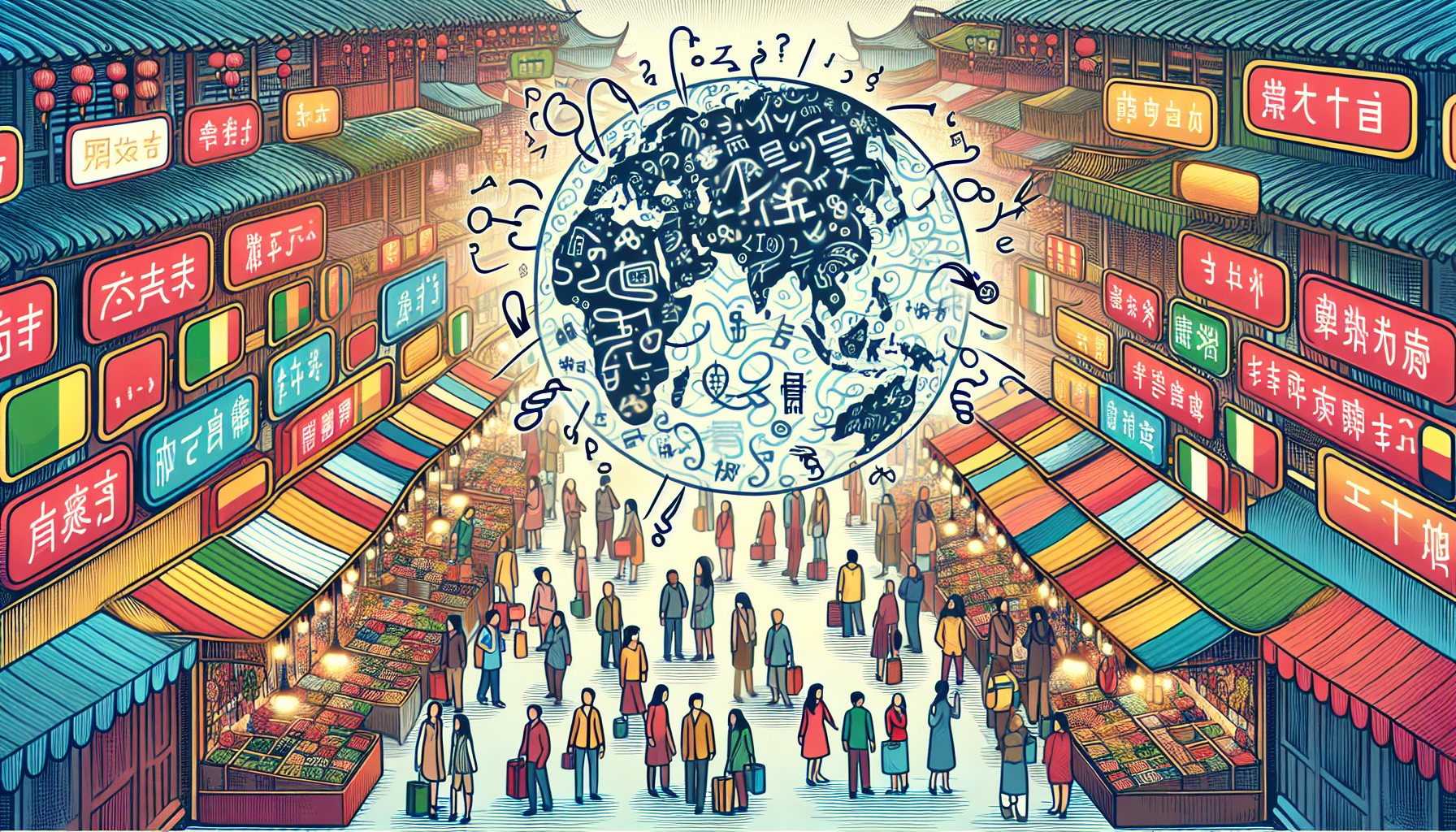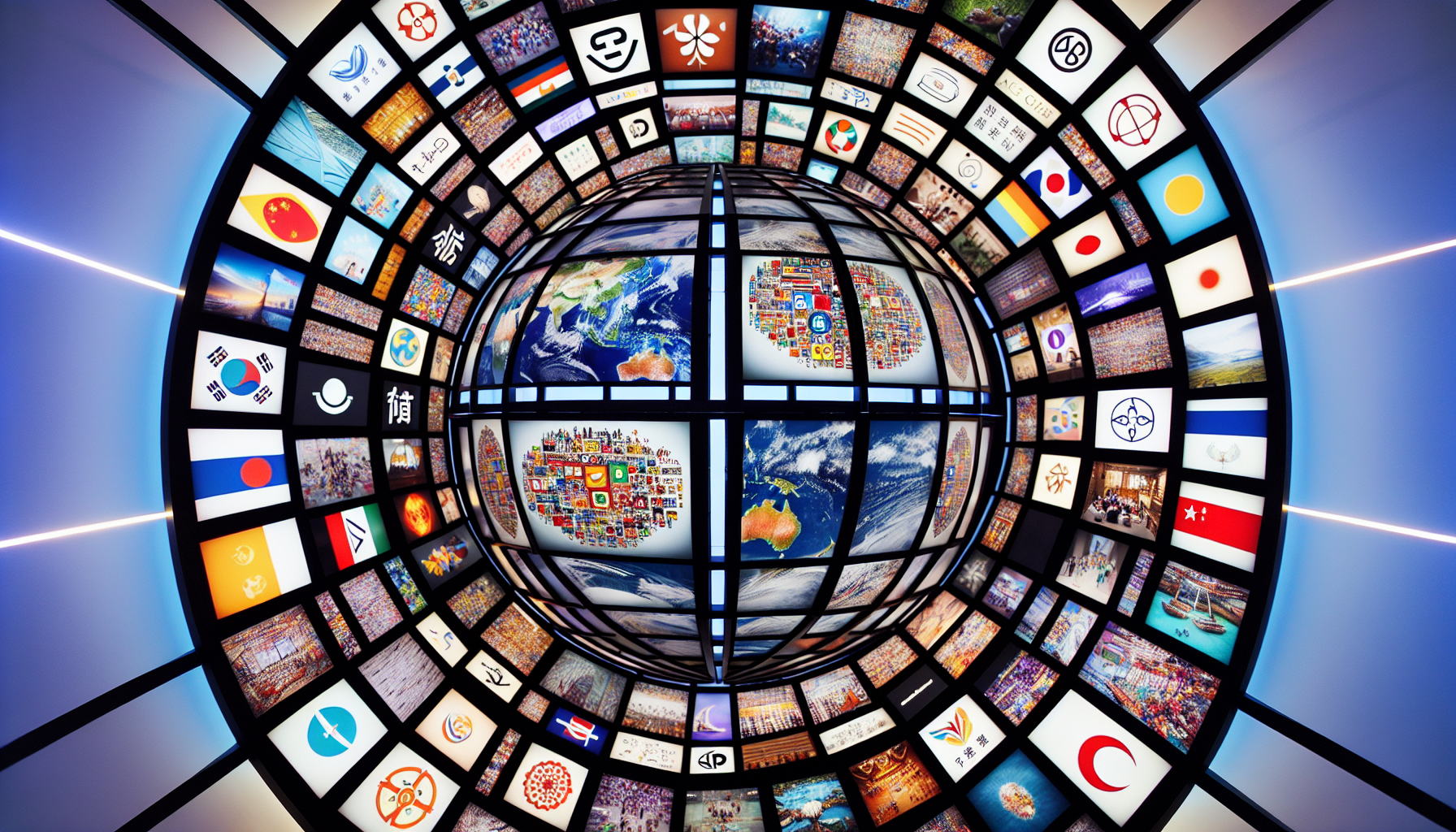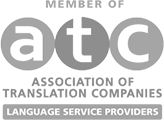Are you expanding your video content across the Asia Pacific and need the best translation partner? Excellence in video translation is more than just language fluency; it’s about cultural insight and market finesse. We reveal how to identify the best video translation agency Asia Pacific offers, ensuring your message resonates perfectly in this diverse market.
Key Takeaways
- The Asia Pacific video translation market is lucrative due to cultural and linguistic diversity, offering vast growth prospects but posing challenges such as language barriers and the need for cultural sensitivity in marketing strategies.
- In the context of video translation, subtitles and voiceovers serve different audience needs and content objectives, where each has its benefits and challenges, requiring careful consideration to preserve message integrity and enhance audience engagement.
- Choosing the right video translation agency necessitates evaluating factors such as the agency’s experience with APAC languages and cultures, industry-specific expertise, quality assurance processes, as well as vetting the agency’s services and securing detailed quotes for comparison.
Understanding the Asia Pacific Video Market

The Asia Pacific region, including East Asia, is a vibrant mosaic of cultures and languages, making it an exciting hub for video marketing. With online video revenues in Asia Pacific, excluding China, set to rise from US$29 billion in 2023 to US$46 billion in 2028, the growth trajectory is impressive. This growth is fueled by the diverse audience in the region, offering substantial potential for business growth through targeted video marketing strategies in Asia Pacific countries.
However, the diversity of the APAC region also presents a challenge. With over 23 countries and more than 3000 different languages, it’s a highly linguistically diverse area. Hence, a deep comprehension of the region’s multilingual landscape is pivotal to communicate effectively with consumers through video marketing.
Multilingual Landscape
The linguistic diversity in the Asia Pacific region is truly astounding. Major global languages like Chinese, Korean, and Japanese coexist alongside local dialects and indigenous languages such as Malay, Hindi, Thai, and Bahasa Indonesia. In Southeast Asia alone, there are over 100 ethnic groups speaking in excess of 1000 different languages and dialects.
Considering this vast linguistic diversity, it becomes essential to choose a professional translation agency with a keen understanding of regional cultural nuances and languages for video translation. The ideal agency would provide professional translation services rendered by native speakers capable of maneuvering through the intricate linguistic landscape, thereby guaranteeing efficient video marketing strategies.
Growth Opportunities

The Asia Pacific region isn’t just linguistically diverse; it’s also a land of vast business opportunities. Translating videos for APAC markets can significantly boost sales and brand awareness, amplify customer engagement and trust, and enhance reach for better search engine optimization. With 71% of APAC viewers engaging with streaming services that support advertising, there is a growth opportunity for brands to leverage video content for branding.
The secret to catalyzing this growth revolves around emphasizing content quality and captivating storytelling. For example, Thai videos have garnered extensive international recognition and success, highlighting the potential for overseas growth for regional content creators. However, when entering APAC markets, specialized industry knowledge becomes indispensable due to the unique nuances among countries, influenced by factors such as audience, environment, regulations, and market categories.
Challenges in Video Translation for APAC Markets

The task of translating video content for the diverse audiences of the APAC region comes with its own set of hurdles. Each country, city, and consumer in the region exhibits distinct diversity, making the translation process uniquely complex. This complexity extends to aspects like language barriers, cultural nuances, and consumer expectations. Failing to consider these factors can alienate the audience.
Technical difficulties also arise in video translation for character-based languages such as Mandarin (Simplified Chinese or Traditional Chinese), Japanese, and Korean. The fonts and layout designs used for these languages present their own set of challenges, particularly when deciding on the character count of each row of subtitles in your video.
Language Barriers
Character-driven languages in the APAC region, like Chinese and Japanese, present significant challenges for video translation. Their script complexity and fundamental differences from alphabet-based languages are daunting for the general bilingual crowd. This results in having a very small pool of skilled translators to provide quality translation services.
Also, when it comes to meeting the multilingual needs of your target audience, particularly in eLearning videos, the mental strain and potential confusion resulting from reading in one language while listening in another can be alleviated through voiceovers.
To further complicate matters, precise translation of specialized terminology in fields like medicine, law, and technology is crucial. This necessitates a deep understanding of these specific terms and their context within the source and target languages, especially in legal translation.
Cultural Sensitivities
Translating video content for the APAC market is more than just a linguistic exercise; it also requires careful consideration of local customs, values, and societal norms to ensure cultural appropriateness. This is no small feat, as different APAC countries have varying cultural expectations, necessitating the adaptation of localization strategies to these specific differences.
This is the stage where aspects like cultural nuances, beliefs, sensitivities, idioms, and local consumer insights become significant. They are vital in creating localized campaigns that effectively resonate with APAC audiences. Transcreation services, which focus on maintaining the message and impact of content in the target culture rather than mere word-for-word translation, can lead to more effective communication in the APAC region.
Subtitle vs. Voiceover: Choosing the Right Option

Subtitle and voiceover are the two primary options for translating online videos, each catering to different audience needs and content objectives. Both options provide benefits such as aiding global market expansion, facilitating cultural connection, and increasing accessibility for the hearing impaired. On the flip side, subtitles and voiceovers also present challenges, including the costs and time needed for high-quality translation, potential visual distraction from subtitles, and the possibility of language nuances being lost in translation.
Proficiency in video localization, which includes modifying elements such as subtitles and voiceovers, is vital to ensure the translated content strikes a chord with the target audience. Let’s delve deeper into these two options.
Subtitles
Subtitles offer a host of benefits. They:
- Aid in understanding different accents and dialects, improving accessibility to a wider audience
- Clarify the spelling of terms, helping viewers to follow complex ideas and concepts, especially in videos with technical content
- Provide access to content for individuals with hearing impairments
- Preserve the original audio and spellings of the content
Yet, subtitles are not without their challenges. Despite being cost-effective and conducive to learning new languages, subtitles can:
- Distract viewers from the visual elements of a video
- Reduce the emotional and physical portrayal of the content
- Make the video less engaging due to the necessity of reading text
Voiceovers
On the other hand, voiceovers are an alternative to subtitles that involve recording voice actors to dub the video content in the desired language. They allow viewers to focus on the visual content without being distracted by reading subtitles, thereby enhancing their understanding and enjoyment of the video. Voiceovers also avoid issues with text expansion or contraction that can occur with subtitling, to accommodate languages that have different sentence structures or verbosity.
However, despite their advantages, voiceovers can have drawbacks. These include the potential for less authenticity if the voice actors do not accurately capture the original tone or cultural nuances. Thus, voiceovers in video translations must be carefully executed to maintain the original content’s integrity.
Key Factors to Consider When Choosing a Video Translation Agency
The choice of the right video translation agency forms a decisive factor that can considerably influence your business’s triumph in the Asia Pacific region. Key factors to consider include the agency’s experience with APAC languages and cultures, industry-specific expertise, and quality assurance processes.
It’s also worthwhile to verify if the video translation agency employs the latest professional video editing and subtitling software to facilitate superior translation output. Additionally, review how the agency prepares quotes, considering factors like language combinations, file formats, word count, and specific expertise required for your project.
Experience with APAC Languages and Cultures
The right video translation agency should:
- Boast a solid track record in the Asia Pacific region
- Offer professional translation services by native speakers who can navigate the complex linguistic landscape, ensuring effective video marketing strategies
- Recognize and comprehend the regional cultural nuances and languages, which is why partnering with translation companies is essential for success in the APAC market.
Moreover, these professionals should have knowledge of nuances such as levels of formality and honorifics, particularly important in languages like Korean and Japanese. Having an agency with extensive experience in translating and localizing content for APAC languages and cultures, like Translated Right, significantly enhances the value of video translation services.
Industry-Specific Expertise
Industry-specific expertise is another critical factor to consider when choosing a video translation agency. Acknowledging the significance of industry-specific expertise is crucial for maintaining the accuracy of translations in the APAC region. Selecting an agency with experienced translators who have a track record in a particular industry can greatly influence the quality and reliability of the translated video content.
Translators with a profound understanding of the subject matter and fluency in industry-specific terminology can accurately translate the intended message of the source material into the target language. Furthermore, the correct and consistent application of terminology in translations is essential for conveying the precise meaning and preserving a unified voice across all translated media.
Quality Assurance Processes
Quality assurance in video translation is a non-negotiable factor. It ensures the translated text adheres to predefined quality standards, maintaining:
- Nuances
- Meaning
- Tone
- Style consistency
Translation accuracy and terminology consistency are pivotal components of quality assurance, requiring language expertise to accurately convey correct meaning and tone.
Quality assurance techniques utilized in video translation include:
- Translation memory
- Glossary management
- Linguistic quality assessment
- Peer review
Furthermore, advanced translation management systems and computer-assisted translation (CAT) tools, alongside automated quality checks, can enhance the translation process by improving efficiency and quality.
Comparing Services and Getting Quotes
While selecting a video translation agency, it’s vital to juxtapose translation services and secure quotes. This process helps eliminate any ambiguity and prevents misunderstandings between the client and the service provider. Also, take into account the turnaround time offered by the video translation service to meet your project deadlines when comparing translation services.
Remember, securing quotes from translation agencies is a prerequisite before finalizing a decision, as it offers a written assurance of the services, their cost, and the deadline. In the following sections, we’ll offer guidance on requesting quotes and evaluating offers from potential translation agencies.
Requesting Quotes
When requesting quotes, it’s important to approach translation agencies professionally. Provide a brief of the outcome you want to achieve, remember to include the target language you require, and also your email signature (with your position and company name) to provide the context of your translation needs. With sufficient information, especially if the original document is provided, you will be able to quickly get a written quote that has a detailed description of services, pricing, and deadlines.
Ensure the quote includes key legal mentions, such as both the service provider’s and your contact information, detailed service description, price, deadline, and signatures from both parties. Don’t forget to ask about the variety of translation services provided by the agency, which may include subtitling, dubbing, voice-overs, and translated transcription.
Evaluating Offers
Evaluating offers is as important as requesting quotes. While price is a significant factor when selecting a translation service, be wary of quotes that are substantially lower than the market average as this may indicate a compromise on translation quality. Low-cost video translation services can lead to inaccuracies, damaging business reputation.
Professional video translation agencies offer personalized quotes tailored to the specific needs and brand voice of the client to ensure fair and relevant pricing. To ensure proper comparison of translation costs, clients must compare quotes that follow a consistent pricing structure, whether it be per-word, per-minute, or per-file rates. Remember, it’s important to find a balance between efficient video translation services and high-quality outcomes.
Case Studies: Successful Video Translations in APAC Markets
Customer testimonials from the local APAC market greatly influence brand perception in international markets, with over half of Chinese and a significant portion of Japanese respondents verifying their importance. Acknowledging cultural nuances and applying meticulous attention to details such as currency usage are crucial in successfully connecting with APAC markets when using a translation service.
Localizing video content for the local market in APAC ensures a competitive edge by aligning the brand closely with your audience’s cultural context.
Security, Confidentiality, and Customer Support
While concentrating on the technical facets of video translation services, the significance of security, confidentiality, and customer support should not be underestimated. A professional translation company will ensure the confidentiality of their content and implement strict security measures to protect video content during the translation process. Translation agencies often adopt secure file transfer protocols, encrypted communication channels, and sign non-disclosure agreements to safeguard sensitive information.
Effective communication channels between the translation company and the client are essential for project updates and ensuring customer satisfaction throughout the translation process. In other words, customer support is a critical aspect of a translation company, aimed at promptly addressing client questions and concerns. At Translated Right, we have an Account Manager to guide you through the process of your translation project.
Visuals and Downloadable Resources

To further augment your understanding, this guide is enhanced with visuals such as infographics and screenshots. We also provide a downloadable checklist that encapsulates the critical tips for selecting the appropriate video translation company. And of course, don’t miss our ‘Get Your Free Quote Today!’ prompt to partner with us in your pursuit for global growth!
Summary
In conclusion, navigating the complex landscape of video translation in the Asia Pacific region necessitates a strategic approach. From understanding the multilingual landscape to addressing language barriers and cultural sensitivities, from choosing between subtitles and voiceovers to selecting the right video translation agency, every step is significant. Paying attention to translation technology, security, confidentiality, customer support, and quality assurance processes can make the difference between an average and an excellent video translation outcome. Remember, your brand’s message is too important to be lost in translation.
Frequently Asked Questions
What is the best video translator?
The best video translator software includes RecCloud, VEED.IO, Filmora, Media.io, Kapwing, and Vizard, each offering various features for translating videos efficiently. Consider trying out these latest video translation technology to find the one that best fits your needs.
What is the highest paid language translation?
The highest paid language translation is German, with German translators often making around $50,000 annually in the US.
What is the significance of video translation in the Asia Pacific region?
Video translation is significant in the Asian countries because of its linguistic diversity and the potential for business growth across sales, brand awareness, and customer engagement. Offering your brand’s content in multiple languages offers valuable opportunities for businesses operating in these emerging markets. It improves brand recognition and your brand image. Having video content in your target audiences’ native language foster trust in your new audiences.
Check with us on how we can bring your business to greater heights!
What are the challenges in translating video content for APAC markets?
Translating video content for Asian countries presents challenges such as language barriers, cultural nuances, and technical difficulties, particularly with character-based languages like Chinese, Japanese, and Korean. These factors require careful consideration and expertise to ensure effective localization. At Translated Right, we have native translators ready to start on your brand videos.
How to choose between subtitles and voiceovers for video translation?
Consider your audience’s needs and content objectives when choosing between subtitles and voiceovers. Subtitles are cost-effective for language learning, while voiceovers enhance viewer engagement.
Businesses looking to grow their client base and increase revenue often turn to growth strategies like overseas expansion, mergers and international trade. Taking the vital first step may be all you need to propel your business to success. However, the process of entering new markets can be fraught with challenges, such as dealing with differences in legal systems and language barriers.
While the entire process of entering overseas markets may appear daunting, enlisting the help of skilled translation services in Singapore like Translated Right could help you better manage your translated legal documents together with your legal team. It’s critical to recognise which papers require expert translations and specialist help as part of your preparations.
These are some of the most crucial documents for international trade that require certified translation services in Singapore.
1. Financial Documents
When it comes to international trade dealings, it’s inevitable that you will have to sort out a large volume of documents related to finance. An accurate translation of the Financial Statement Analysis, for example, is critical. Furthermore, your overseas partners or other banks may want all of the documents relating to your bank account.
Pricing and other financial matters are prescribed in a distinct part of each contract. You will need to educate partners about the bank’s costs and other peculiarities. Also, keep in mind that your potential stakeholders will be relying on all of the translated financial documents, so they must be done accurately and professionally.
2. Certificates
You will come across many credentials, such as quality certificates, as soon as you dive into the reality of international trade or overseas mergers. The sort of certifications you deal with will be determined by the sector you operate in. It’s recommended that your certifications be translated to show documentation of your company’s accomplishments and set yourself apart from your competition.
Certificates are essential for your company’s growth. They may showcase your team’s productivity and skill set in addition to helping you acquire the trust of your customers. The following is a sample of the sorts of certifications that may require a translation company in Singapore for your foreign business:
- Certificates of Origin
- Export Certificates
- Certificates of delivery verification
- Bill of Lading
- Certificates of inspection
- Certificates of health and safety
3. Patents
In your industry, you may need to register for patents under your company in the country you want to market in. You must translate exclusive innovation rights into the languages of all the nations you intend to expand into . Because a patent is an essential legal document, it must be translated by an expert – not just a translator but also a subject matter expert.
Keep in mind that every detail counts when it comes to the law. In some cases, adding a comma to a statement might drastically alter its original meaning.
4. Audit Documents
An audit is a review of your company’s financial accounts and reports. The results of independent audits is an important document that may help a company succeed in the worldwide market. Experts suggest translating them ahead of time rather than relying on hasty and faulty translations, which may be costly and result in a slew of difficulties in the future.
There is a two-fold demand for Singapore translations in auditing. To begin, you can use audit findings to recruit partners. Secondly, an audit may unexpectedly arrive at your door, requiring paperwork from your overseas partners.
5. Import/Export Contracts
In addition to declarations, you will need to draft and translate import/export contracts with your partners. Contracts are agreements between you and your foreign business partner that include action plans or rules and laws. Even the tiniest blunder can result in a significant misunderstanding, which is why Singapore translation services are crucial in many international commerce transactions.
You will need an expert to draft a contract that complies with international standards. The import/export contract is a mini-plan for how you will build your relationship with your foreign partner. This contract will be a lifesaver in the event of a misunderstanding. Therefore, you should engage a competent translation service provider in Singapore to prevent unnecessary issues.
Engage Professional Translation Services for Your Legal Translation Needs
It’s difficult and time-consuming to translate documents for international trade. Every tiny detail on the contract or in your financial records could completely alter its significance. A professional translation expert has spent their time in developing their skills and expertise in the translation industry particularly for legal documents. You should inquire about their qualifications and prior experience. Consider reading external reviews of the translation agency in Singapore to gain a complete picture.
Although accessing overseas markets may appear complicated at first, nothing can stop you from succeeding if you collaborate with the professional translation services who are knowledgeable in the intricacies of the legal translation process. Get in touch with us for our legal translation services today.
Businesses looking to grow their client base and increase revenue often turn to growth strategies like overseas expansion, mergers and international trade. Taking the vital first step may be all you need to propel your business to success. However, the process of entering new markets can be fraught with challenges, such as dealing with differences in legal systems and language barriers.
While the entire process of entering overseas markets may appear daunting, enlisting the help of skilled translation services in Singapore like Translated Right could help you better manage your translated legal documents together with your legal team. It’s critical to recognise which papers require expert translations and specialist help as part of your preparations.
These are some of the most crucial documents for international trade that require certified translation services in Singapore.
1. Financial Documents
When it comes to international trade dealings, it’s inevitable that you will have to sort out a large volume of documents related to finance. An accurate translation of the Financial Statement Analysis, for example, is critical. Furthermore, your overseas partners or other banks may want all of the documents relating to your bank account.
Pricing and other financial matters are prescribed in a distinct part of each contract. You will need to educate partners about the bank’s costs and other peculiarities. Also, keep in mind that your potential stakeholders will be relying on all of the translated financial documents, so they must be done accurately and professionally.
2. Certificates
You will come across many credentials, such as quality certificates, as soon as you dive into the reality of international trade or overseas mergers. The sort of certifications you deal with will be determined by the sector you operate in. It’s recommended that your certifications be translated to show documentation of your company’s accomplishments and set yourself apart from your competition.
Certificates are essential for your company’s growth. They may showcase your team’s productivity and skill set in addition to helping you acquire the trust of your customers. The following is a sample of the sorts of certifications that may require a translation company in Singapore for your foreign business:
- Certificates of Origin
- Export Certificates
- Certificates of delivery verification
- Bill of Lading
- Certificates of inspection
- Certificates of health and safety
3. Patents
In your industry, you may need to register for patents under your company in the country you want to market in. You must translate exclusive innovation rights into the languages of all the nations you intend to expand into . Because a patent is an essential legal document, it must be translated by an expert – not just a translator but also a subject matter expert.
Keep in mind that every detail counts when it comes to the law. In some cases, adding a comma to a statement might drastically alter its original meaning.
4. Audit Documents
An audit is a review of your company’s financial accounts and reports. The results of independent audits is an important document that may help a company succeed in the worldwide market. Experts suggest translating them ahead of time rather than relying on hasty and faulty translations, which may be costly and result in a slew of difficulties in the future.
There is a two-fold demand for Singapore translations in auditing. To begin, you can use audit findings to recruit partners. Secondly, an audit may unexpectedly arrive at your door, requiring paperwork from your overseas partners.
5. Import/Export Contracts
In addition to declarations, you will need to draft and translate import/export contracts with your partners. Contracts are agreements between you and your foreign business partner that include action plans or rules and laws. Even the tiniest blunder can result in a significant misunderstanding, which is why Singapore translation services are crucial in many international commerce transactions.
You will need an expert to draft a contract that complies with international standards. The import/export contract is a mini-plan for how you will build your relationship with your foreign partner. This contract will be a lifesaver in the event of a misunderstanding. Therefore, you should engage a competent translation service provider in Singapore to prevent unnecessary issues.
Engage Professional Translation Services for Your Legal Translation Needs
It’s difficult and time-consuming to translate documents for international trade. Every tiny detail on the contract or in your financial records could completely alter its significance. A professional translation expert has spent their time in developing their skills and expertise in the translation industry particularly for legal documents. You should inquire about their qualifications and prior experience. Consider reading external reviews of the translation agency in Singapore to gain a complete picture.
Although accessing overseas markets may appear complicated at first, nothing can stop you from succeeding if you collaborate with the professional translation services who are knowledgeable in the intricacies of the legal translation process. Get in touch with us for our legal translation services today.
Businesses looking to grow their client base and increase revenue often turn to growth strategies like overseas expansion, mergers and international trade. Taking the vital first step may be all you need to propel your business to success. However, the process of entering new markets can be fraught with challenges, such as dealing with differences in legal systems and language barriers.
While the entire process of entering overseas markets may appear daunting, enlisting the help of skilled translation services in Singapore like Translated Right could help you better manage your translated legal documents together with your legal team. It’s critical to recognise which papers require expert translations and specialist help as part of your preparations.
These are some of the most crucial documents for international trade that require certified translation services in Singapore.
1. Financial Documents
When it comes to international trade dealings, it’s inevitable that you will have to sort out a large volume of documents related to finance. An accurate translation of the Financial Statement Analysis, for example, is critical. Furthermore, your overseas partners or other banks may want all of the documents relating to your bank account.
Pricing and other financial matters are prescribed in a distinct part of each contract. You will need to educate partners about the bank’s costs and other peculiarities. Also, keep in mind that your potential stakeholders will be relying on all of the translated financial documents, so they must be done accurately and professionally.
2. Certificates
You will come across many credentials, such as quality certificates, as soon as you dive into the reality of international trade or overseas mergers. The sort of certifications you deal with will be determined by the sector you operate in. It’s recommended that your certifications be translated to show documentation of your company’s accomplishments and set yourself apart from your competition.
Certificates are essential for your company’s growth. They may showcase your team’s productivity and skill set in addition to helping you acquire the trust of your customers. The following is a sample of the sorts of certifications that may require a translation company in Singapore for your foreign business:
- Certificates of Origin
- Export Certificates
- Certificates of delivery verification
- Bill of Lading
- Certificates of inspection
- Certificates of health and safety
3. Patents
In your industry, you may need to register for patents under your company in the country you want to market in. You must translate exclusive innovation rights into the languages of all the nations you intend to expand into . Because a patent is an essential legal document, it must be translated by an expert – not just a translator but also a subject matter expert.
Keep in mind that every detail counts when it comes to the law. In some cases, adding a comma to a statement might drastically alter its original meaning.
4. Audit Documents
An audit is a review of your company’s financial accounts and reports. The results of independent audits is an important document that may help a company succeed in the worldwide market. Experts suggest translating them ahead of time rather than relying on hasty and faulty translations, which may be costly and result in a slew of difficulties in the future.
There is a two-fold demand for Singapore translations in auditing. To begin, you can use audit findings to recruit partners. Secondly, an audit may unexpectedly arrive at your door, requiring paperwork from your overseas partners.
5. Import/Export Contracts
In addition to declarations, you will need to draft and translate import/export contracts with your partners. Contracts are agreements between you and your foreign business partner that include action plans or rules and laws. Even the tiniest blunder can result in a significant misunderstanding, which is why Singapore translation services are crucial in many international commerce transactions.
You will need an expert to draft a contract that complies with international standards. The import/export contract is a mini-plan for how you will build your relationship with your foreign partner. This contract will be a lifesaver in the event of a misunderstanding. Therefore, you should engage a competent translation service provider in Singapore to prevent unnecessary issues.
Engage Professional Translation Services for Your Legal Translation Needs
It’s difficult and time-consuming to translate documents for international trade. Every tiny detail on the contract or in your financial records could completely alter its significance. A professional translation expert has spent their time in developing their skills and expertise in the translation industry particularly for legal documents. You should inquire about their qualifications and prior experience. Consider reading external reviews of the translation agency in Singapore to gain a complete picture.
Although accessing overseas markets may appear complicated at first, nothing can stop you from succeeding if you collaborate with the professional translation services who are knowledgeable in the intricacies of the legal translation process. Get in touch with us for our legal translation services today.
Businesses looking to grow their client base and increase revenue often turn to growth strategies like overseas expansion, mergers and international trade. Taking the vital first step may be all you need to propel your business to success. However, the process of entering new markets can be fraught with challenges, such as dealing with differences in legal systems and language barriers.
While the entire process of entering overseas markets may appear daunting, enlisting the help of skilled translation services in Singapore like Translated Right could help you better manage your translated legal documents together with your legal team. It’s critical to recognise which papers require expert translations and specialist help as part of your preparations.
These are some of the most crucial documents for international trade that require certified translation services in Singapore.
1. Financial Documents
When it comes to international trade dealings, it’s inevitable that you will have to sort out a large volume of documents related to finance. An accurate translation of the Financial Statement Analysis, for example, is critical. Furthermore, your overseas partners or other banks may want all of the documents relating to your bank account.
Pricing and other financial matters are prescribed in a distinct part of each contract. You will need to educate partners about the bank’s costs and other peculiarities. Also, keep in mind that your potential stakeholders will be relying on all of the translated financial documents, so they must be done accurately and professionally.
2. Certificates
You will come across many credentials, such as quality certificates, as soon as you dive into the reality of international trade or overseas mergers. The sort of certifications you deal with will be determined by the sector you operate in. It’s recommended that your certifications be translated to show documentation of your company’s accomplishments and set yourself apart from your competition.
Certificates are essential for your company’s growth. They may showcase your team’s productivity and skill set in addition to helping you acquire the trust of your customers. The following is a sample of the sorts of certifications that may require a translation company in Singapore for your foreign business:
- Certificates of Origin
- Export Certificates
- Certificates of delivery verification
- Bill of Lading
- Certificates of inspection
- Certificates of health and safety
3. Patents
In your industry, you may need to register for patents under your company in the country you want to market in. You must translate exclusive innovation rights into the languages of all the nations you intend to expand into . Because a patent is an essential legal document, it must be translated by an expert – not just a translator but also a subject matter expert.
Keep in mind that every detail counts when it comes to the law. In some cases, adding a comma to a statement might drastically alter its original meaning.
4. Audit Documents
An audit is a review of your company’s financial accounts and reports. The results of independent audits is an important document that may help a company succeed in the worldwide market. Experts suggest translating them ahead of time rather than relying on hasty and faulty translations, which may be costly and result in a slew of difficulties in the future.
There is a two-fold demand for Singapore translations in auditing. To begin, you can use audit findings to recruit partners. Secondly, an audit may unexpectedly arrive at your door, requiring paperwork from your overseas partners.
5. Import/Export Contracts
In addition to declarations, you will need to draft and translate import/export contracts with your partners. Contracts are agreements between you and your foreign business partner that include action plans or rules and laws. Even the tiniest blunder can result in a significant misunderstanding, which is why Singapore translation services are crucial in many international commerce transactions.
You will need an expert to draft a contract that complies with international standards. The import/export contract is a mini-plan for how you will build your relationship with your foreign partner. This contract will be a lifesaver in the event of a misunderstanding. Therefore, you should engage a competent translation service provider in Singapore to prevent unnecessary issues.
Engage Professional Translation Services for Your Legal Translation Needs
It’s difficult and time-consuming to translate documents for international trade. Every tiny detail on the contract or in your financial records could completely alter its significance. A professional translation expert has spent their time in developing their skills and expertise in the translation industry particularly for legal documents. You should inquire about their qualifications and prior experience. Consider reading external reviews of the translation agency in Singapore to gain a complete picture.
Although accessing overseas markets may appear complicated at first, nothing can stop you from succeeding if you collaborate with the professional translation services who are knowledgeable in the intricacies of the legal translation process. Get in touch with us for our legal translation services today.









